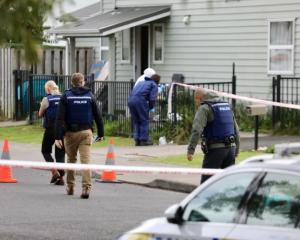The head of one of the largest crime syndicates in New Zealand has been jailed for more than 17 years.
Feng Chih "Daniel'' Hsu was one of the main targets in Operation Acacia, a 12-month covert investigation into an underworld network spanning Auckland, Waikato and the Coromandel that manufactured, sold and distributed methamphetamine.
Hsu was sentenced in the High Court at Auckland today to 17 years and three months in prison with a minimum non-parole period of eight years.
Other members of his group were also sentenced for their part in possessing and supplying methamphetamine and pseudoephedrine.
Henry Anthony Mika was sentenced to nine years and four months in prison; Phokham Bouavong six years; Thi Hong Lan Nguyen 12 years; Tavita Maleko five years; Ka Kit Poon nine years and Aenoy Keophila 12 years and six months.
Justice Kit Toogood said the combined amount of methamphetamine and pseudoephedrine found with the prisoners had a combined street level value was between $6 million and $7 million.
"The Crown accurately describes you as a well organised crime syndicate dealing methamphetamine in New Zealand,'' he said.
Hsu was described as "at the top of the distribution pyramid'' by Justice Toogood.
He was caught with firearms and a 4.7kg stash of methamphetamine. He pleaded guilty to methamphetamine possession and supply charges before trial.
The charges carry a maximum sentence of life in prison.
When armed police raided Hsu's North Shore home in July 2010, detectives found 5kg of methamphetamine, 2kg of a flu drug ContacNT - which contains pseudoephedrine, the main ingredient in P - a cache of firearms and ammunition and over $20,000.
The discovery was described as one of the most significant seizures of P made in New Zealand.
Referred to as "elder brother'' or "Big Daniel'', Hsu was the head of the organised crime enterprise and able to source large amounts of methamphetamine and pseudoephedrine from overseas.
The drugs would be delivered to his right-hand man who passed the parcels to middlemen and couriers.
In turn, they would supply lower-level dealers in the syndicate.
The joint inquiry between the Organised and Financial Crime Agency and the Auckland Metro Crime and Operations Support relied on intercepted conversations from tapped cellphones.
More than 80 phones and 46,000 private communications were intercepted over the course of the inquiry, and those caught on tape spoke in code.
Detectives were also able to establish a link between the Auckland drug network and methamphetamine cooks in the Coromandel Peninsula.
At the time of the arrests, Detective Inspector Steve Wood described the disruption of the organised crime syndicate as "one of the most significant seizures of methamphetamine made in New Zealand''.











